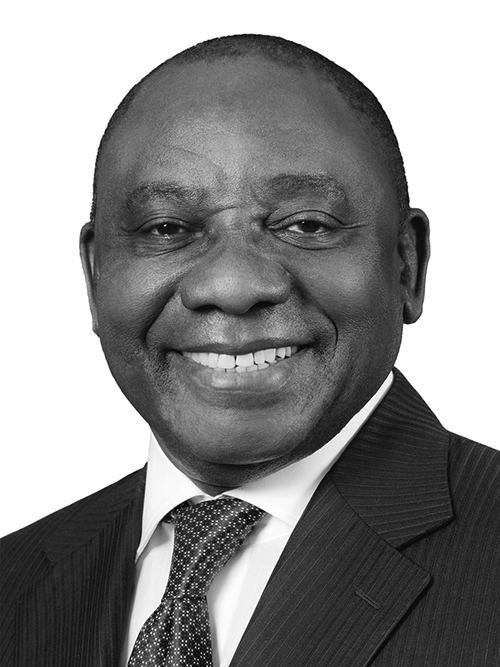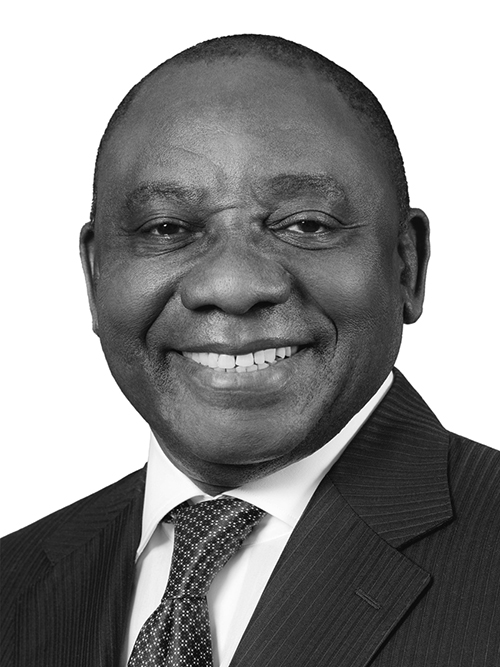Programme Director, Mr Cameron Dugmore;
Deputy Mayor of Knysna Municipality, Mr Morton Gericke;
Chairperson of the Regional Investment Conference Committee, Mr. Nathi Mabukane;
Members of panel discussions;
Business representatives and investors;
Senior Government officials;
Ladies and gentlemen;
When I first addressed the Knysna Regional Investment Conference, I never thought that you would sustain the momentum of this beautiful initiative. I am very proud of your commitment to promoting this part of our country as a key investor destination, but also a catalyst for tourism in the Garden Route.
I was looking forward to spending the weekend with you as part of the Conference, but also as part of enjoying the beautiful Knysna. I, however, asked Minister Gayton McKenzie to join you physically owing to other pressing commitments.
The theme for our discussions, "strengthening intergovernmental coordination and private sector collaboration for inclusive economic growth," speaks directly to what the presidency, as the centre of Government, has been promoting.
The National Government is strengthening partnerships for economic growth through several programmes, such as the Strategic Partnership Program, Public-Private Partnerships (PPPs), and the Government Business Partnership.
These programmes are designed to harness private capital and expertise to enhance investment opportunities and stimulate economic growth. They specifically target issues in infrastructure development, improving operational efficiency, and creating employment opportunities for the youth, thereby addressing critical economic challenges.
These programmes are no different from the ones that you have been collaborating on and promoting, such as the iThuba Development Project, which directly addresses critical socio-economic challenges, including affordable housing, job creation, skills development, and economic empowerment.
We commend the iThuba Development Project, which is a R200 billion initiative that aims to drive inclusive growth, infrastructure renewal, township revitalisation, and innovation-led economic development across the Garden Route District and beyond.
These initiatives are not merely development projects; they are catalysts for change that align with South Africa’s National Development Plan mandate to promote sustainable and inclusive growth. They reflect a collaborative commitment to transform the very communities that shaped us, ensuring that the next generation inherits a future of dignity, opportunity, and shared prosperity.
History has taught us that when we collaborate as diverse stakeholders, such as government, the private sector, civil society, and communities with shared goals and a clear vision, the result is a greater impact.
Historically in Africa, collaboration was always key to building and sustaining regional economies. Extensive trade networks and the rise of powerful states across the continent were founded on sophisticated systems of cooperation and economic interdependence, predating modern concepts of regional integration.
In the modern interconnected world, achieving economic success necessitates a collaborative approach that integrates various sectors and stakeholders. Governments cannot operate in isolation, nor can the private sector function independently. A united effort is essential to cultivate an environment that promotes innovation, growth, and overarching prosperity.
Achieving unity towards a common vision is a challenging endeavour, complicated by the diverse backgrounds, perspectives, and interests of the individuals involved. It requires constant effort, characterised by patience, empathy, effective communication, and a strong commitment to the shared goal.
In planning for the 2025 RIC, I recognise that you have encountered similar challenges. Nevertheless, I admire your perseverance, as you continued to strive for reform until successfully transitioning to the Economic Coordination Roundtable. By the end of this roundtable, we must have clearly defined objectives to enhance service delivery within the Knysna District Municipality and to improve coordination among relevant Government departments.
What is also important is that this roundtable should consider the importance of intergovernmental relations. Chapter 3 of the Constitution describes the three spheres as being ‘distinctive, interdependent and interrelated’ and enjoins them to ‘cooperate in mutual trust and good faith’.
An important element of the cooperative relationship between spheres of Government is the need for a clear understanding of each sphere’s powers and functions, ensuring that no sphere or organ of state encroaches on another's geographical, functional, or institutional integrity.
Ladies and gentlemen,
Intergovernmental relations are crucial for South Africa's economic growth as they ensure coordination between national, provincial, and local governments to implement policies and deliver services effectively.
Strong intergovernmental relations prevent the duplication of resources and efforts, align strategic planning, and foster a stable environment for investment, which is essential for economic development. This is what we have been encouraging with the implementation of the District Development Model (DDM), which encourages better coordination among the various spheres of Government.
The DDM recognises that Government action alone is not enough. We must also harness the power of the private sector, which is a key driver of innovation, entrepreneurship, and job creation.
In terms of entrepreneurship and job creation in our communities, we must assist startups. Small enterprises boost local economic activity and are essential to the area economy. Small enterprises make significant contributions to job creation, local tax revenue, and community spending through local sourcing. Their localised approach enhances the resilience and dynamism of regional economies, particularly in non-metro areas.
Local municipalities need to encourage young individuals to start their own businesses, as small enterprises create jobs, products, revenue, and services that benefit the community. Significant investments in the local economy are necessary to empower the younger generation and facilitate their economic participation.
In collaboration with the Department of Trade, Industry and Competition, the Department of Small Business Development has recently introduced a R500 million Spaza Shop Support Fund. This initiative aims to deliver both financial and non-financial assistance to South African-owned spaza shops, general dealers, and grocery stores located in townships and rural areas.
This initiative aims to revitalise townships and rural economies while fostering job creation and economic growth in marginalised communities. The Government is strategically empowering local retail businesses in these areas by providing them with essential resources and funding.
The Government is committed to transforming townships into dynamic economic centres by establishing clear standards, simplifying the process for both legal and informal businesses to enter and operate, and providing customised resources for easier operations within municipal boundaries.
Ladies and gentlemen,
Together, we possess the capacity to influence the future of our region, fostering a more inclusive and prosperous society for everyone. By collaborating closely, both Government and the private sector can establish a virtuous cycle of growth that not only alleviates poverty but also empowers communities, paving the way for a brighter future for generations to come.
Our Government is committed to implementing initiatives aimed at enhancing Broad-Based Black Economic Empowerment (BBBEE) and promoting employment equity. This is being fast-tracked as we are now speeding up the execution of our policies.
A significant part of this involves supporting small and medium enterprises (SMEs), specifically in townships and rural communities. The goal is to redirect economic activities toward regions where most of the population resides, thereby fostering inclusive growth and development.
As South Africa prepares to hold the G20 Summit in the coming days, the Summit’s theme 'Solidarity, Equality, and Sustainable Development' has been chosen to guide its agenda for this historic engagement to be held on African soil.
While we have, throughout our Presidency, hosted many meetings. On the 22nd and 23rd November, leaders of the world and from our continent will descend to our shores. This is an opportunity to showcase our beautiful country and the continent to the world.
We are ready to show the world our hospitality and warmth, and indeed our spirit of ubuntu. I ask that you use this period to promote our commitment to building a non-racial, non-sexist, democratic, united and prosperous South Africa.
Tell the world that there is no genocide happening in our country. Tell the world that we live side by side and we are building a nation that Madiba and Tutu spoke about. We are building a nation that Braam Fischer and Helen Suzman spoke about, we are building a nation that Fatima Meer and Dr Naicker fought for.
As we do so, let us not allow anyone or anything to derail us from the task of building a South Africa that belongs to all who live in it.
I thank you.








